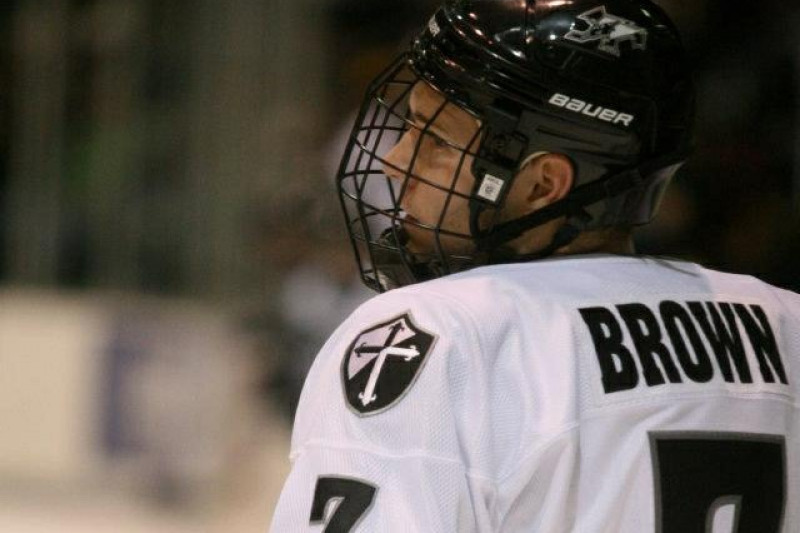One of the finest examples of this can be found in a recent article written about Notre Dame hockey player Anders Bjork. The article is called Sunday Brunch: Mr. B and Room 208. It is about Anders’s involvement with a 3rd grade class in an underprivileged South Bend neighborhood. When I started reading the article, I thought I was going to read just another story about a college athlete giving up one hour/week to meet his graduation requirements. Boy was I wrong! The teacher of the class writes the article, and she spares the reader no details about what Anders means to her students. By the end of the article I was in tears, so awestruck by what an athlete can accomplish when their heart is bigger than their ego. Anders Bjork is an amazing young man, with a true gift for caring.
I met Anders during his 2 years at USA Hockey’s National Team Development Program (NTDP). I always noticed his warm, caring personality, he seemed so much more mature and genuine than most of the other 16 year old players on the team. What Anders always seemed to understand is that with privilege comes responsibility.
I am sad to report that this seems to be the exception, rather than the rule, for most young athletic superstars. With overbearing parents living vicariously through their kids, always pushing to have their kids play “up” in hopes of providing the child with a more competitive training environment, it is my opinion that the higher skilled players are always being removed from settings where they could learn to provide leadership. What’s wrong with letting your child stay with their own birth year and start learning how to give back by leading their teammates? Leadership requires practice, and if you are always the youngest and the least skilled on a team, you are not going to have any chances to practice those skills. Worse yet, older kids who may be socially inappropriate for them will surround your younger child. What this usually fosters is a highly skilled young player with a chip on his/her shoulder about how great they are and a false sense of confidence. After 35 years of coaching hockey players, including hundreds of thousands of hours spent in ice rink lobbies, locker rooms, and in the stands, I can safely say that most top-notch players do not possess strong moral character. As parents and coaches, we all need to make sure that our young athletes are being taught life-skills first, hockey skills second.
So while your child is riding the “I am the greatest train”, don’t forget to teach them charity, kindness, and responsibility to others. Make sure they understand that they have a responsibility to give back to all those who supported them on their way to the top. Teach your young athlete that they are in the unique position of being someone that other people will look up to and listen to. Make sure they know that giving back to their community by providing leadership and love to those who may not have those things in their life is one of the most heroic things any of us can do.

Recent Comments